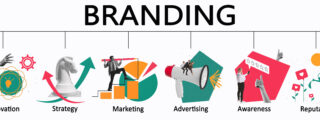
What’s in a Word? How to Choose the Best Keywords
What’s in a word? A lot, when you’re talking about keywords and search engine optimization. It is, in fact, a subject that confuses and confounds almost every small business that’s trying to target its audience. Here are a few tips to help you get more lovin’—that is, more looks, likes, tags, and shares.
Tip: Social media search is slowly evolving into a search service similar to Google.
WHAT’S TRENDING
For starters, check out which keywords are trending. Why is that so important? According to Kissmetrics, “Social media search is slowly evolving into a search service similar to Google.”
Do your own searches and see what comes up when you key into the search box a word or phrase you’re considering using.
To make sure potential customers and patients can find your business, you can use something like Google AdWords to help identify top keywords and pinpoint social media or SEO trends.
Your word selection should be based on the sort of response you’re hoping to elicit. When it comes to triggering emotions, for example, convinceandconvert.com suggests five words to, as they put it, create “a powerful couplet when married with relevancy and need-to-know topics.”
THE 5 W’s
Assuming you remember your high-school English, they’re already words you know—the five W’s.
- WHO. Use it to grab attention and elicit a fear of missing out on something.
- WHAT. “This induces a question in the left hemisphere of the brain,” explains the website. And, according to a study by Cognitive Psychologists, “’What’ is recognized 52% more than the other W’s in language cognition.”
- WHEN. The American Psychological Association reports that ‘when’ is among the most powerful words in English. The key is timing. As The Brain and Cognition Journal reports, if you don’t deliver on a ‘when’ promise, “64% of people will lose trust in what you tell them afterwards.”
- WHERE. The Journal of Science & Health says that answering or asking ‘where’ brings a personal approach to encouraging the reader to go wherever you are talking about. The journal offers two examples: Where You Should Post Your Content For Best Results and Promoting Your Content Where The Pros Do.
- WHY. The experts at convinceandconvert.com explain that ‘why’ demands closure and an immediate answer. “The best blogs always ask a question. For example, the Social Media Examiner’s blog normally starts articles with a question that asks why.”
So what do you do with words like the 5 W’s? Kissmetics says to make sure you use them liberally in headlines, photo captions, and web page tagging.
The point? Minor messaging changes like emphasizing the 5 W’s can go a long way to encouraging more online responses.
Do you look for keywords and find ways to use them in social media at your practice? Tell us what you’ve tried and share in the conversation on Facebook here.
Comments are closed.







